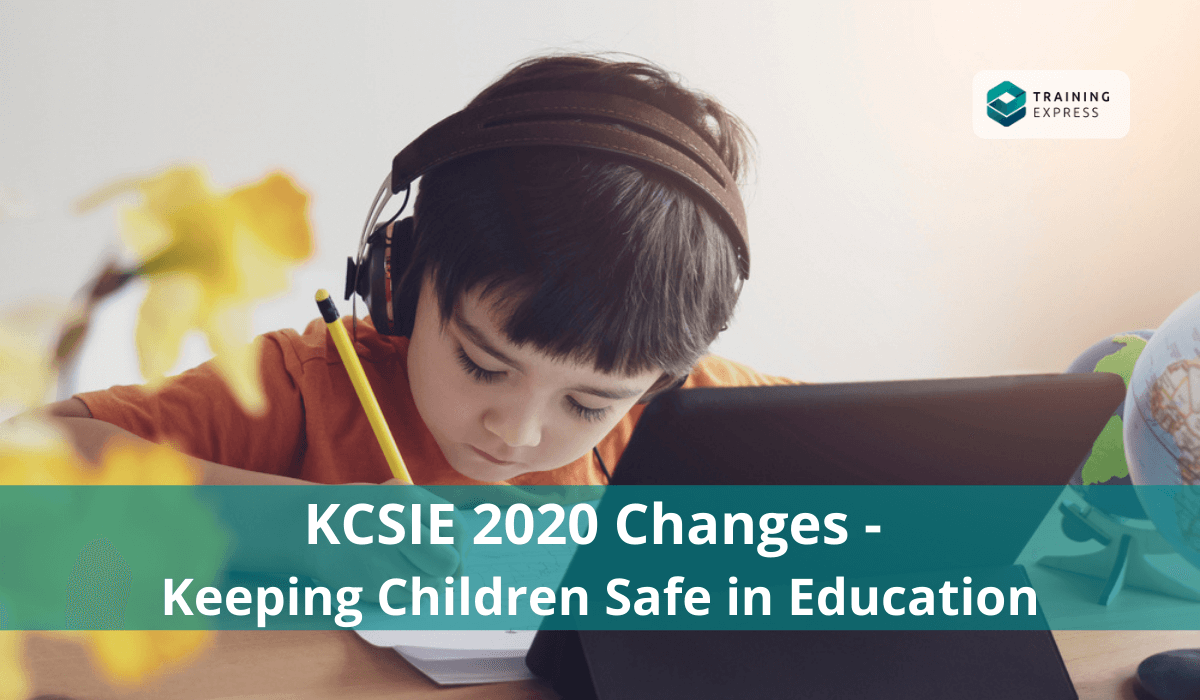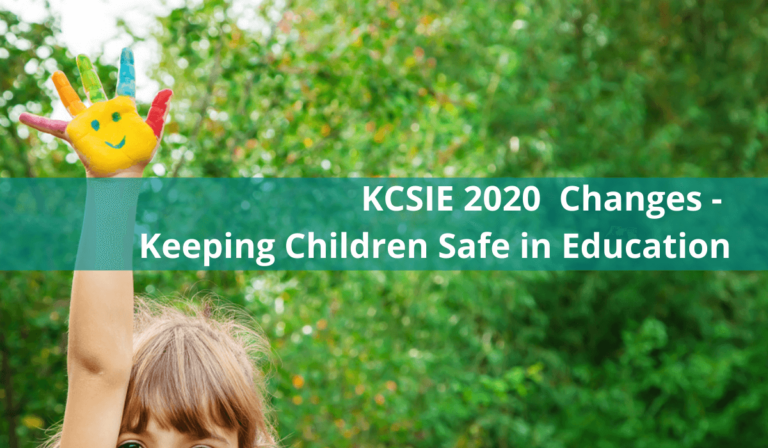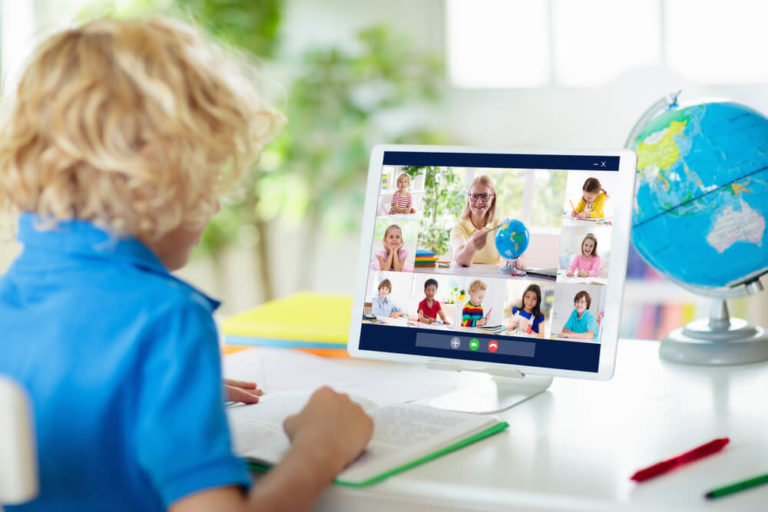
8.5 million people suffer at least one form of child abuse before the age of 16 years, according to the Crime Survey for England and Wales (CSEW). That’s why Keeping Children Safe in Education (KCSIE) is of utter importance for safeguarding children. The government of the UK also recognises that. Hence, the KCSIE 2020 changes.
Here, you will find all the changes made in the latest KCSIE 2020 update, including the following –
Table of Contents
What is KCSIE?
In case you are wondering what KCSIE means, it is Keeping Children Safe in Education. It provides statutory guidance on how to safeguard children and on safer recruitment. It is published by the Department for Education (DfE) and issued under:
Keeping children safe in education or KCSIE is the key document that guides all the educational settings to safeguard children and young people. It provides a framework of the legal duties for governance and leadership. It enables them to ensure the best practices and the safety of children and young people. The document is reviewed annually by HM Government to ensure rising safeguarding issues are included. It also ensures that the current guidance reflects all changes or redefinitions required. The KCSIE document is updated every 1 to 2 years.
Who does KCSIE 2020 guidance apply to?
KCSIE 2020 applies to all schools and colleges. This statutory KCSIE guidance must be read and followed by:
- Governing bodies of maintained schools and colleges
- Proprietors of independent schools and non-maintained special schools
- Management committees of pupil referral units (PRU)
Overall this guidance should be followed by anyone who is working at the school or college. Also, anyone who provides education for children under 18 years of age. Also, every staff member in schools and colleges should read at least Part 1 of the guidance. Because it sets out what legal duties they must abide by to ensure safeguarding children under the age of 18.
KCSIE 2021 Changes
Following the UK leaving the European Union (EU), two substantive changes have been made in KCSIE 2020. The following changes are visible from KCSIE January 2021
- No references to check Teacher Services for EEA sanctions. (Paragraphs 149 & 165)
- Revised to give advice on how schools and colleges can check the past conduct of individuals who have lived or worked overseas after the UK’s withdrawal from the European Union. (Paragraph 172)
Aside from these two, Proposed statutory guidance for schools and colleges 2021 has been published for consultation. You can see the draft here at Keeping children safe in education 2021. Since this is not the final version, schools and colleges must continue to follow KCSIE 2020.
KCSIE 2020 Changes

As mentioned before, KCSIE is updated to reflect significant changes. Aside from the KCSIE 2021 January update, schools and colleges should follow KCSIE 2020 changes. If you’re wondering what changes have been made in the KCSIE 2020 version? The following should answer your questions regarding KCSIE.
Part one: Safeguarding information for all staff
Part two: The management of safeguarding
Part four: Allegations of abuse
Annex A: Further information
Annex B: Designated Safeguarding Lead
Annex C: Online safety
Coronavirus (Covid-19) pandemic
Before going into applicable changes, we should address the COVID-19 issue. Because keeping children safe has taken on a newfound significance during the pandemic. It has also created new risks and challenges for schools and colleges. The Department for Education (DfE) issued interim non-statutory guidance on safeguarding in schools during this outbreak. Guidance on ‘Coronavirus (COVID-19): safeguarding in schools, colleges and other providers’ was published in May 2020. But it was withdrawn on 31 July 2020 after the decision to reopen schools and colleges.
KCSIE has guided schools and colleges in response to coronavirus. Schools are required to comply with its requirements for everyone’s safety. Due to Coronavirus, schools must revisit their safeguarding policies and processes differently from usual.
Part one: Safeguarding Information for all Staff
Part one of the guidance provides advice on safeguarding information for all staff that includes the following –
Mental and Physical Health
It recognises that both mental and physical health are essential to safeguard children’s welfare (paragraph 4). It focuses on raising awareness of mental health. Because even mental health issues can be a potential indicator of child abuse. The guidance states that staff should have essential skills to recognise the signs of child abuse. Training on Safeguarding children can be helpful in this regard. It emphasises mental health. To help staff understand the link between mental health concerns and safeguarding issues. (Paragraph 34-38)
Contextual Safeguarding
Contextual safeguarding is an approach to protecting children. In essence, it recognises that children and young people may be at risk of abuse outside their home, like in school or the mall. The contextual safeguarding paragraph has been moved from paragraph 32 to 21. The intention is to encourage all staff, specifically Designated Safeguarding Lead’s (DSL), to consider situations outside schools or their families.
Child Criminal Exploitation and Child Sexual Exploitation
Both child criminal exploitation (CCE) and child sexual exploitation (CSE) are forms of abuse. They occur when both of the following happens
- An individual or group takes advantage of the power imbalance
- Manipulates a child into sexual or criminal activity.
More information about CCE and CSE is available in the guidance. (In paragraph 28 as well as additional information in Annex A)
Supply Staff
The guidance includes what staff should do if they have safeguarding concerns about another staff member. More importantly, when a staff member might pose a risk to the children. (Paragraph 56). The following are also explicitly clear in the guidance.
- What steps to take in such a situation and
- Who should they refer to
Part two: The Management of Safeguarding
The management of safeguarding in part two contains the following changes.
When to Call the Police
Guidance on when to consider calling the police and what to expect when they do is added in part two (paragraph 70). Advice on liaising with the three safeguarding partners and working with other agencies. The three safeguarding partners are –
1. The local authority
2. The clinical commissioning group
3. The chief officer of police in that area
Besides that, there are resources for the designated safeguarding lead (DSL) on
Multi-agency Working
Schools and colleges must play their role in multi-agency safeguarding arrangements properly. The goal is to work together with appropriate, relevant agencies. In particular to safeguard and promote children’s welfare and respond to their needs. It also emphasises the role of governing bodies, proprietors and senior leadership teams in safeguarding partner arrangements. (Paragraph 74-78
Information Sharing
Further clarification on Information sharing is provided in paragraph 84. Governing bodies and proprietors must ensure that data protection principles are met. Data protection principles allow them to share or withhold personal information. They can do so as per the Data Protection Act 2018 and the GDPR.
New Data Protection Tool Kit
Changes in KCSIE 2020 include Data protection: a toolkit for schools. It also provides guidance to support schools with data protection and compliance with the GDPR. (Paragraph 86)
Online Safety
As schools and colleges’ online activity increases, children must be safeguarded. They need protection against potentially harmful and inappropriate online content. Hence, governing bodies and proprietors must ensure suitable filters and proper monitoring systems. (Paragraph 92)

Opportunities to Teach Safeguarding
This includes safeguarding children against relevant issues by educating them on the following. (Paragraph 94)
- Relationships Education (for primary pupils)
- Relationships and Sex Education (for secondary pupils)
- Health Education (compulsory for pupils in state-funded schools)
This is made compulsory by Statutory guidance: relationships education, relationships and sex education (RSE), and health education.
Inspection
Guidance on Ofsted’s early years and schools’ inspections and how to report safeguarding arrangements. (Paragraphs 96-98)
Safeguarding Concern or Allegation Against a Staff Member
It includes what school and college staff should do in case they have a safeguarding concern. It also includes processes and guidance on allegations that a staff member might harm the children. (Paragraphs 101-102)
Children Potentially at Greater Risk of Harm
This update reflects a social worker’s needs to children with safeguarding or welfare needs. (Paragraphs 109-111)
Children Requiring Mental Health Support
It raises awareness on the importance of mental health. In addition to providing resources and funding programs for schools and colleges. (Paragraphs 113-116)
Part four: Allegations of Abuse
Part four of KCSIE 2020 provides guidance when there are allegations of abuse against teachers and other staff of schools and colleges.
Duties as an Employer and an Employee
This part deals explicitly with allegations made against teachers and other staff. Namely, supply teachers as well as volunteers. Most importantly, it covers anyone that might pose a risk to a child. For example, someone who has a criminal record against a child or behaves in a way that isn’t suitable to work with children. In essence, anyone working in a school or college that provides education for children under 18 should be aware of this. (Paragraph 211)
Supply Teachers
Includes further guidance on how schools and colleges can handle allegations against supply teachers. This refers to teachers who are employed by the agency. (Paragraph 214-217)
Annex A: Further Information
Annex A emphasises the importance of children’s social care and provides further information on the following –
- Child Criminal Exploitation (CCE)
- Child Sexual Exploitation (CSE)
- County Lines
- Domestic abuse
- Honour-based abuse
- Preventing radicalism
- Upskirting
Annex B: Designated Safeguarding Lead
It contains helpful advice for designated safeguarding leads (DSL) on the children’s needs of a social worker. It also provides suggestions for actions that can promote children’s educational outcomes.
Annex C: Online Safety
Emphasises online safety due to excess use of Technology and the safeguarding issues that arise from it. Annex C contains the following changes.

Education at Home
The Department of Education has provided advice on how to support schools and colleges in safe online learning.
Information and Support
Includes information to support schools, colleges and parents or carers to keep children safe online, along with the following.
- Advice and resources for governing bodies or proprietors and senior leaders
- Remote education, virtual sessions and live-streaming
- Support for children
- Parental support
Closing Notes
All the changes in KCSIE 2020 are very significant, considering Brexit and the pandemic. Most importantly, they all focus on Safeguarding children. Proper implementation of these changes will ensure the well-being of children and young people.
Safeguarding Children
Level 3
Read more on our blog
- Why You Should Use Photo Background Removers For Mobile Devices
- Maximizing ROI: 11 Strategies For Efficient Advertising Spend
- How to Keep Your Data Safe While Applying for Jobs: 6 Tips
- Take Mac Classes to Transform Your Design Profession
- Exploring the landscape of e-commerce hosting
- TikTok Hashtags: Top Hashtags Which Help You to Get More Followers in 2024
- Personal Branding For Executives: 7 Tips For Maximum Impact
- Transformative Technologies in Senior Living Homes: A Glimpse into 2024
- Continuous Learning: Navigating the Ever-Evolving Landscape of Software Development
- Challenges and Solutions in Implementing Auto Replenishment for Small Businesses
- Available Courses
- Career Bundles72
- Animal care5
- Law8
- Quality Licence Scheme Endorsed111
- Teaching13
- Teaching & Academics Primary27
- Accounting & Finance Primary29
- Training3
- Design9
- IT & Software43
- Healthcare124
- Marketing31
- Health and Safety400
- Construction48
- Electronics25
- Hospitality22
- Health and Social Care219
- Child Psychology37
- Management370
- Business Skills267
- First Aid70
- Employability264
- Safeguarding75
- Food Hygiene103
- Personal Development1272
 Food Hygiene
Food Hygiene Health & Safety
Health & Safety Safeguarding
Safeguarding First Aid
First Aid Business Skills
Business Skills Personal Development
Personal Development







